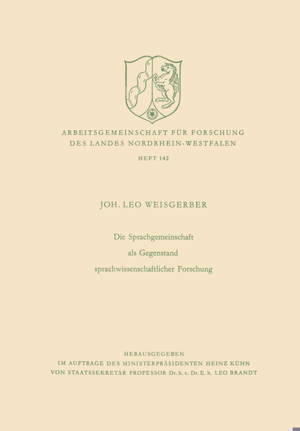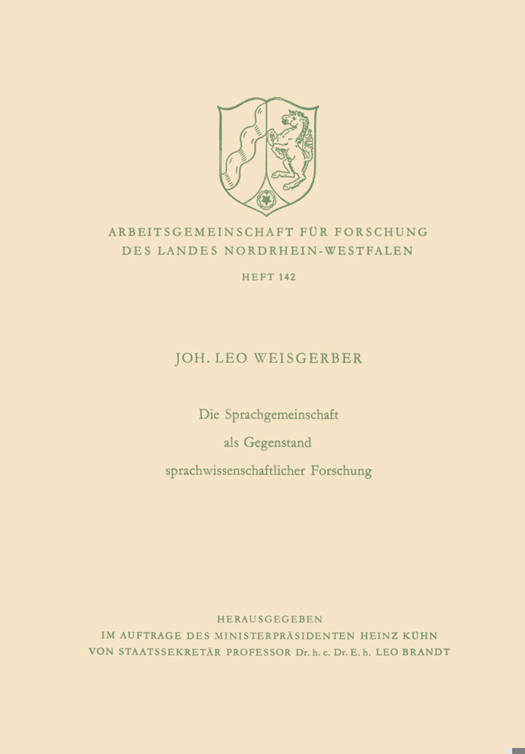
Bedankt voor het vertrouwen het afgelopen jaar! Om jou te bedanken bieden we GRATIS verzending (in België) aan op alles gedurende de hele maand januari.
- Afhalen na 1 uur in een winkel met voorraad
- Gratis thuislevering in België vanaf € 30
- Ruim aanbod met 7 miljoen producten
Bedankt voor het vertrouwen het afgelopen jaar! Om jou te bedanken bieden we GRATIS verzending (in België) aan op alles gedurende de hele maand januari.
- Afhalen na 1 uur in een winkel met voorraad
- Gratis thuislevering in België vanaf € 30
- Ruim aanbod met 7 miljoen producten
Zoeken
Die Sprachgemeinschaft ALS Gegenstand Sprachwissenschaftlicher Forschung
Leo Weisgerber
€ 54,45
+ 108 punten
Omschrijving
The author proceeds from the assumption that every language is basically a process of linguistic activity in a language-community. Therefore linguistic research must be aware of two different aspects: the historical phenomenon of a language and the underlying socio-linguistic activity in the language- community. Linguistic science and sociology have to cooperate in exploring these general conditions. Linguistic science can contribute to this task in three different ways: 1. by the interpretation of the 'law of the language-community', i. e. the fact that mankind is by nature and with historical and geographical continuity divided into language-communities. 2. by the analysis of the language-process whose essence is the fact that a language-community 'words the world' (wortet die Welt) in the course of the millenia, i. e. that, by means of its entire language-ability, it transforms the realities of life into language consciousness. 3. by the investigation of the role which a language-community plays in socio- historical-culturallife (demonstrated by the delimitation of the concepts of Germ. Nation, Volk, Sprachgemeinschaft).
Specificaties
Betrokkenen
- Auteur(s):
- Uitgeverij:
Inhoud
- Aantal bladzijden:
- 61
- Taal:
- Duits
- Reeks:
- Reeksnummer:
- nr. 142
Eigenschappen
- Productcode (EAN):
- 9783663003212
- Verschijningsdatum:
- 1/01/1967
- Uitvoering:
- Paperback
- Formaat:
- Trade paperback (VS)
- Afmetingen:
- 170 mm x 244 mm
- Gewicht:
- 117 g

Alleen bij Standaard Boekhandel
+ 108 punten op je klantenkaart van Standaard Boekhandel
Beoordelingen
We publiceren alleen reviews die voldoen aan de voorwaarden voor reviews. Bekijk onze voorwaarden voor reviews.









